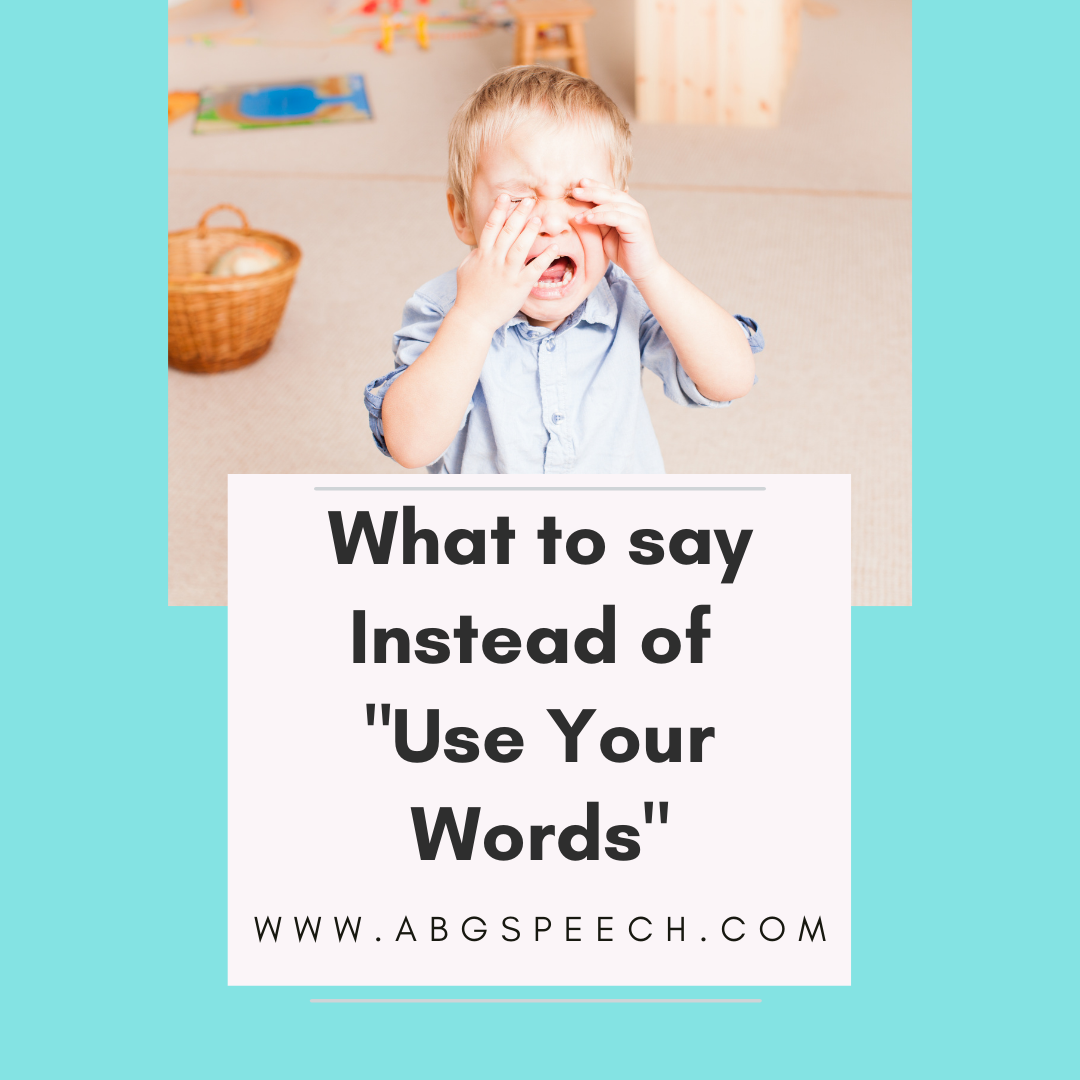Hi, I’m Amanda, a licensed pediatric Speech-Language Pathologist (Speech Therapist). I am passionate about empowering you with the tools to get your child talking. I love working with parents to take the guesswork out of getting your baby, toddler or preschooler talking.
Are you looking for a way to help your child communicate? One of the best ways to help children communicate is to MODEL what to say and HOW to say it.
•
Have you been in a situation where your child was crying and not telling you what’s the matter? Did your child continue to stare at you or cry? Have you used the phrase “use your words”? Please know that we have all used this phrase before. You have not caused any harm by using it.
•
When you use the phrase, “use your words” this implies that your child knows what to say and the exact words to use. Your child may or may not know what to say. They might know what to say but when they are upset, they struggle to formulate a sentence in that moment. Your child may not have these words in their vocabulary yet.
•
TRY THIS:
Let’s take the demands off your child when they struggle to communicate, are upset or are having a tantrum.
We can make this moment easier by GUIDING them and COACHING them through it.
The best way to help children communicate is to MODEL what to say and HOW to say it. When you show your child what to say , this builds their skills for the future.
Again, I want to reiterate, if you have used the phrase “use your words”, you have not caused any harm. Try this tip next time.
•
WHAT TO SAY INSTEAD OF “USE YOUR WORDS”
✅ MODEL the words to use: Use simple language that’s easy to understand.
✅ STATE the exact words to use. (I want juice. I want milk.)
✅ THINK- ALOUD: Talk about how you solve problems so your little one can hear your internal thought process. (The store is out of chocolate milk but we can buy milk and chocolate syrup to make our own.}
✅ Acknowledge their GESTURES: if your child is pointing at something, say the words that go along with the gesture. (If they point at a toy or food, say “You want the ball? Here’s the ball. You want a cookie? Here’s a cookie.”)
✅ Teach FEELING words- talk about different emotions and feelings.(I see that you are mad/upset/frustrated.) When you talk about feeling words/emotions this gives your child the words to use later on so that they can say “I am mad.” “I am sad.” “I am happy.”)
•
Looking for more tips to help get your toddler talking. Checkout my online course, Talking Tips Academy™ that is now available for preorder by clicking HERE.
If you found these tips useful be sure to download your FREE Speech Sound Development Guide with first words tips to learn what sounds to expect and how to encourage more words!






